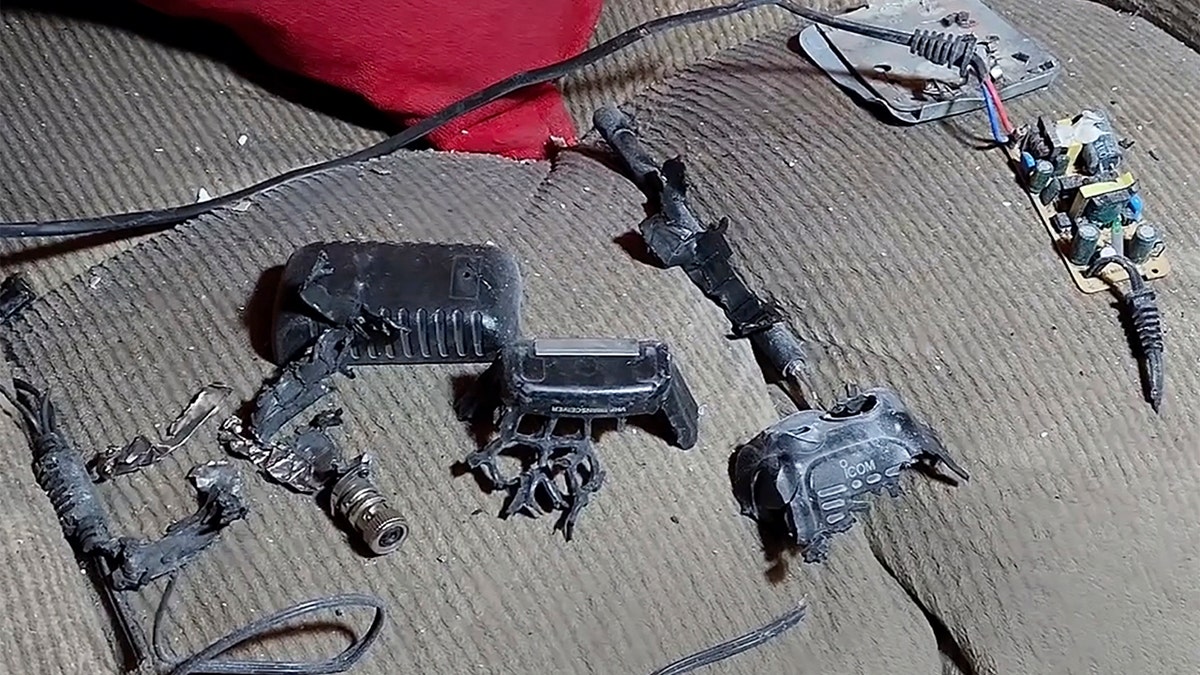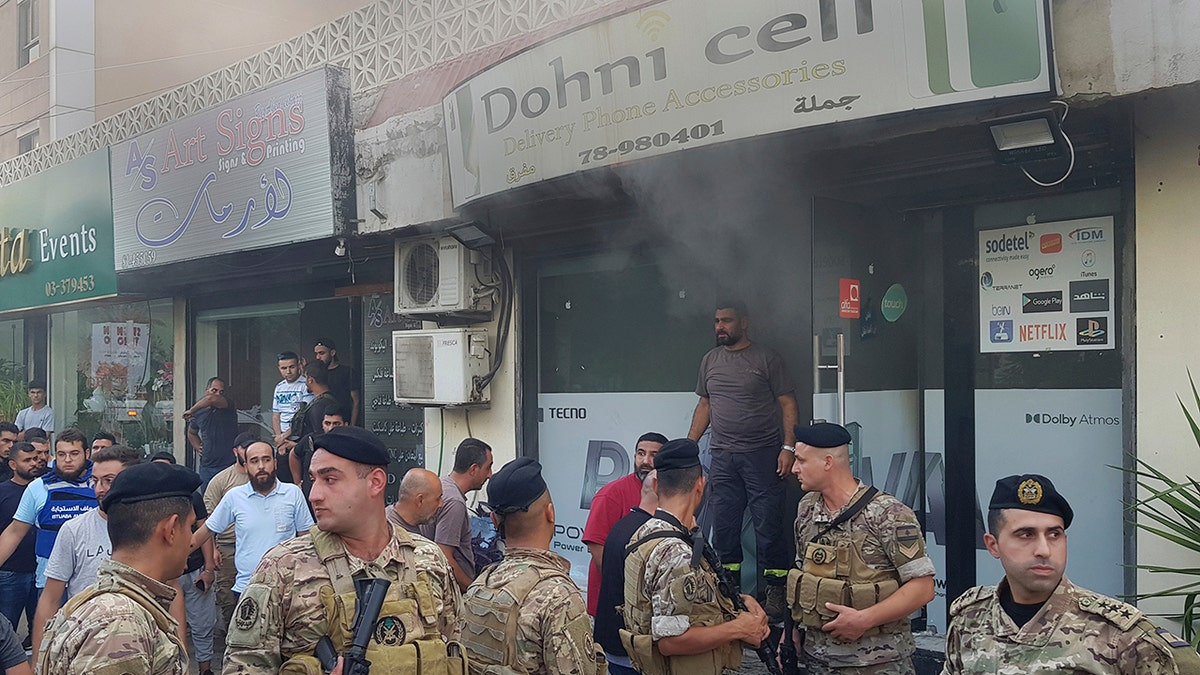The explosions of hundreds of pagers used by Hezbollah members across Lebanon and Syria on Tuesday and the detonation of a second wave of electronic devices a day later remain a mystery, though experts are calling the deadly blasts a sophisticated attack that likely took months of planning.
The two waves of bombings killed at least 37 people, including at least two children, and wounded more than 3,000 others, Lebanon’s Health Ministry said.
Here’s what to know about the deadly covert, sophisticated attacks:
James Bond-style supply chain infiltration
The sophistication of the pager bombings suggests months of long-term planning, according to experts who believe the supply chain was infiltrated and hundreds of pagers were rigged with explosives before they were imported to Lebanon. But little evidence has emerged so far.
HEZBOLLAH’S NEIGHBORS: ISRAELI BORDER COMMUNITY UNDER CONSTANT ATTACK FROM TERROR GROUP

Mourners carry the coffins of victims who were killed Tuesday after their handheld pagers exploded, during their funeral procession in the southern suburb of Beirut, Lebanon, on Wednesday. (AP Photo/Bilal Hussein)
Few details about what led to the second wave of electronic devices, which Hezbollah officials said included walkie-talkies and solar equipment, were known.
Where did the pagers originate?
The operation’s trail stretched across the globe from Taiwan to Budapest before the devices ended up in Lebanon.
Taiwanese pager firm Gold Apollo said its AR-924 pager brand was licensed to a Hungarian-based company, BAC Consulting KFT. Gold Apollo said it was not involved in the production of the devices, which it says were manufactured and sold by BAC.

This photo shows a house where a Hungarian company that allegedly manufactured pagers that exploded in Lebanon and Syria is headquartered in Budapest on Wednesday. (AP Photo/Denes Erdos)
Taiwan’s Ministry of Economic Affairs said that it had no records of direct exports of Gold Apollo pagers to Lebanon. And a Hungarian government spokesman later added that the pager devices had never been in Hungary, either, noting that BAC had merely acted as an intermediary.
ISRAEL STRUCK BY LONG-RANGE MISSILE FROM YEMEN, 40 PROJECTILES FROM LEBANON IN EARLY MORNING ATTACKS
Walkie-talkies that exploded Wednesday appeared to be knock-off products of Japanese walkie-talkie maker Icom that were not made by the company, a sales executive at the company’s U.S. subsidiary told The Associated Press.

This video grab shows a walkie-talkie that was exploded inside a house in Baalbek, east Lebanon, on Wednesday. (AP Photo)
Why was Hezbollah using pagers?
Hezbollah has used pagers to communicate for years, though the group’s leader recently called on members to stop using cell phones altogether over concerns that Israeli intelligence could track the phones.

Lebanese soldiers gather outside a damaged mobile shop after what is believed to be the result of a walkie-talkie exploding inside it in the southern port city of Sidon, Lebanon, on Wednesday. (AP Photo/Mohammed Zaatari)
Pager technology is simpler than a cellphone and carries lower risks for intercepted communications.
Israel blamed for explosions
Both attacks are widely believed to be carried out by Israel.
Hezbollah and Lebanon immediately pointed fingers at Israel following the explosions on Tuesday. On Wednesday, a senior U.S. official confirmed to Fox News that Israel was behind the pager explosions.
Experts have said the pager operation was likely carried out by Israel’s foreign intelligence agency, the Mossad, which has a worldwide reputation as one of the most formidable intelligence agencies.
US denies involvement, knowledge of attack
U.S. officials have denied that the U.S. was involved or had any knowledge of such an attack before the two waves of explosions.
Secretary of State Antony Blinken on Tuesday said “the United States did not know about, nor was it involved in, these incidents.”
The explosions, however, have deepened concerns about an escalation into an all-out war between Israel and Hezbollah.
CLICK HERE TO GET THE FOX NEWS APP
“And we’re still gathering, the information and gathering the facts. Broadly speaking, we’ve been very clear, and we remain very clear about the importance of all parties avoiding any steps that could further escalate the conflict that we’re trying to resolve in Gaza,” Blinken said. “To see it spread to other fronts. It’s clearly not in the interest of anyone involved to see that happen. And that’s why, again, it’s imperative that all parties refrain from any actions that could escalate the conflict.”
Fox News Digital’s Benjamin Weinthal and The Associated Press contributed to this report.


